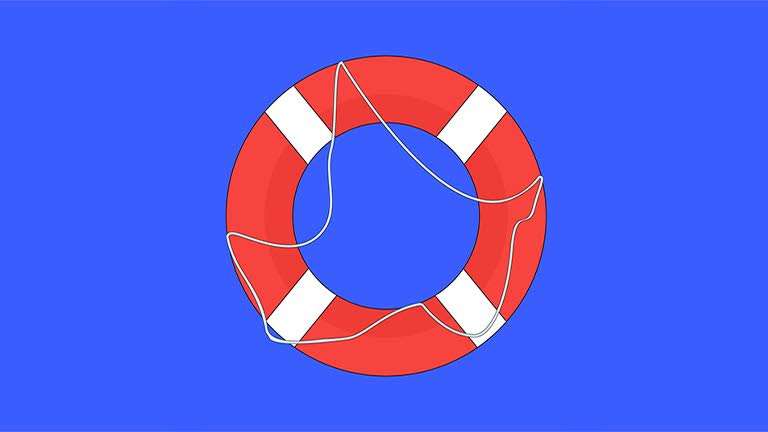
Seafarer Suicide
There are many things that training to be a seafarer prepares you for. You need to know ship handling, engine maintenance, and maybe even the names of stars to navigate by. There is a lot to learn, but unfortunately, there are gaps too.
The gaps are especially wide when it comes to problems of mental health and well-being. Whether looking after one’s own, or that of those onboard there are many aspects which need to be improved.
I have experience of being sat in a cabin at 0300 while the tears and screams of my colleague next door filled the alleyways. The sheer overpowering sadness reverberated. What to do though? Stricken with my deep-seated fears, stresses and strains, is there a way to deal with those who are struggling? Yes, but do we always know what they are? No.
Challenges of Change
Incidents of suicide at sea have traumatic effects, often leading to feelings of self-blame among surviving crew members, potentially creating a downward spiral in mental health. Though thankfully training courses are now emerging, the Mission to Seafarers “We Care” campaign being one of the leading lights.
A major challenge in addressing suicide among seafarers is the “uncertainty problem”—the difficulty in categorising deaths as suicides due to circumstances and cultural taboos. This uncertainty hampers efforts to openly discuss and address the issue, and there is a lack of reliable data on the true scale of seafarer suicides.
Chaplains, ship visitors, and seafarer centre staff are crucial in supporting mental health at sea, offering a non-judgmental space for seafarers to discuss their issues. They also help to publicise available resources and provide educational programs, which are essential for raising awareness and reducing stigma. The impact of suicide extends beyond the individual, affecting the entire crew’s mental well-being.
Suicide among seafarers is a problem, we just do not know quite how big. What is more certain is the obvious link to the mental health challenges inherent in the seagoing work environment.

The Scale of the Problem
A recent study by Norwegian marine insurer Gard reveals that 11% of crew fatalities on its insured fleet from 2019 to 2023 were suicides. Gard suggests this figure might be an underestimate due to underreporting.
There is no standardised international framework for recording suicides at sea, leading to concerns that the true number of suicides is higher than reported. Various studies suggest that suicide rates among seafarers could range from 5-12% of all deaths at sea.
A 2022 UK government report highlights that suicide is likely underreported due to difficulties in classification and the desire to protect survivors’ financial and emotional well-being. The report also notes a reluctance to discuss suicide, influenced by both industry culture and cultural taboos. Research by Yale University in 2020 found that 20% of seafarers reported suicidal thoughts, further underscoring the urgent need for improved mental health support and transparency in the industry.
Good Mental Health
Shipping is a compliance-based business. This means that companies adopt a stance of being 100% correct and safe 100% of the time. This means that underreporting, underestimation or ignoring of problems is inevitable. This makes it incredibly hard, if not impossible for the industry to fully embrace mental health fixes, as it does not readily admit to having a problem.
So, the wider issue of mental health challenges at sea remains poorly addressed, both within the industry and in broader society. Cultural stigmas around mental health and concerns about confidentiality often prevent seafarers from seeking the help they need, contributing to a silent crisis on our seas.
The life of a modern seafarer is a reality marked by isolation, loneliness, and significant mental health challenges. The very nature of seagoing—spending long periods away from home, confined to a vessel—can profoundly impact seafarers’ mental well-being.
To address the mental health challenges and potential risk of suicide among seafarers, the maritime industry needs to act urgently by involving mental health practitioners.
Local Focus
Hong Kong, as a major maritime hub, plays a crucial role in supporting the mental well-being of seafarers. Specialised mental health services are essential to meet the unique needs of these workers. As such, mental health practitioners should collaborate with welfare organisations to develop culturally sensitive programs, prioritising outreach and education.
Workshops, informational materials, and direct communication can help reduce the stigma around mental health issues. Partnering with shipping companies can further enhance these efforts, creating a more supportive onboard environment.
Confidentiality and accessibility of services are key, given the logistical challenges faced by seafarers. Services should be available through multiple channels, including in-person consultations, helplines, and online platforms. Telehealth services provide a practical solution for ongoing support regardless of location.
Collaboration with maritime organisations is vital for implementing comprehensive mental health strategies, including regular assessments and integrated support structures. Mental health practitioners in Hong Kong have a critical role in improving the well-being of seafarers by providing targeted support and fostering a robust support network. This starts with awareness, then a willingness and desire to effect change.
Photo Credits:
First image: AliceFame
Second image: Aytug Askin

Steven Jones
About the author
Steven Jones is a former seafarer living in the UK. He conducts research on the wellbeing of those working at sea. He is Founder of the Seafarers Happiness Index and works alongside the Mission to Seafarers to bring change in how the Maritime Industry interacts with mental health and wellbeing.
Recently Added
The journey of raising children comes with countless moments where they need our support and guidance. Whether our children are typically developing …
The World Infant, Child and Adolescent Mental Health Day was first initiated to highlight the importance of mental health, starting from the …
“My New Year’s resolution will be to exercise at least three times a week”, “this is my year where I am going …




